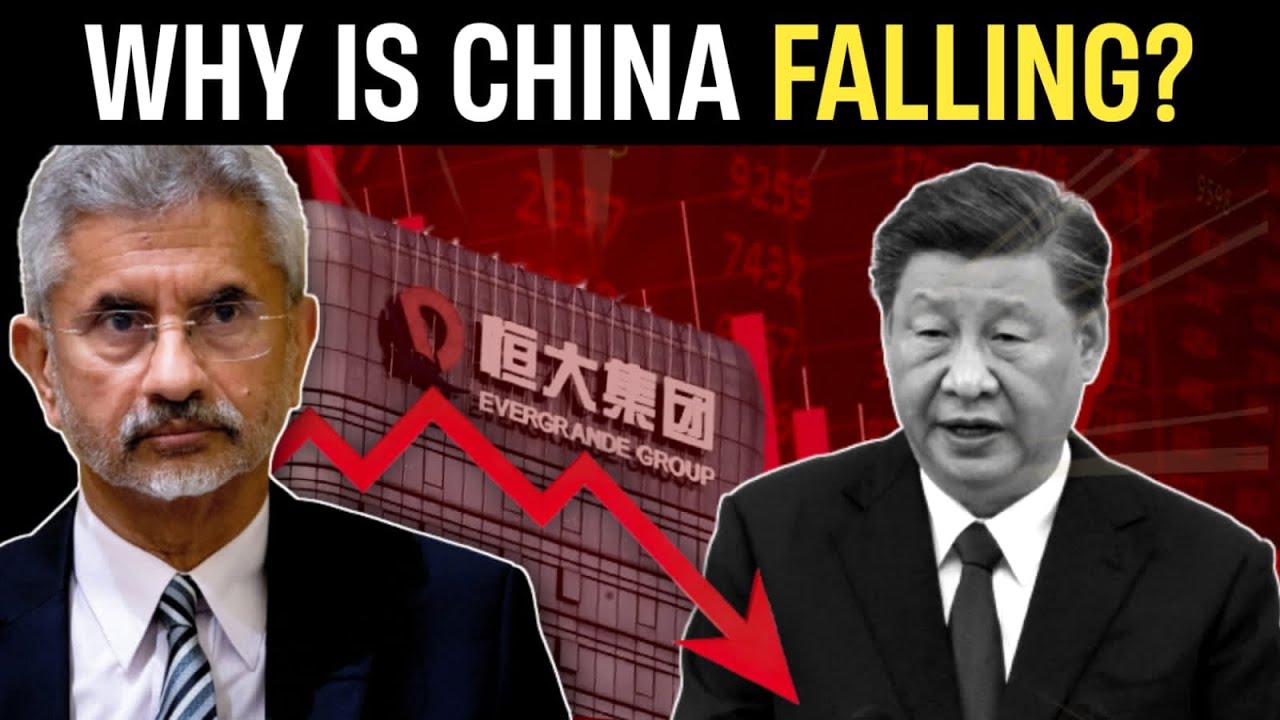How China's property bubble burst
Summary
TLDRIn 2023, China's real estate market faced a severe crisis, with developers offering unusual incentives like gold bars to attract buyers. Originating from a system where private property was non-existent until the 1980s, China saw a massive boom in homeownership, leading to an inflated property market worth $60 trillion. However, unsustainable borrowing practices, encouraged by the government to stimulate growth, led to a bubble. The implementation of policies like the Three Red Lines in 2020 aimed to curb this debt, resulting in unfinished projects and plummeting confidence. With the sector holding $8.9 trillion in debt by 2024, the crisis poses a significant threat to China's economy and global markets.
Takeaways
- 💥 Property developers in China, facing a sales crisis in 2023, offered unusual incentives like gold bars and phones to attract homebuyers.
- 🔨 The crisis in China's real estate market involved massive debts for developers and local governments, alongside tens of millions of empty apartments.
- 🏠 China's real estate market, young and evolving since the 1980s, saw rapid growth with up to 90% of households owning homes by 2023.
- 💵 Land-use rights, separated from land ownership in 1988 reforms, became a critical revenue source for local governments, sidestepping property taxes.
- 📈 The 1994 tax overhaul by Beijing, while boosting central government revenues, pushed local governments towards earning from land-use sales.
- 🚦 A construction boom, fueled by land sales and urbanization, significantly contributed to China and the global economy for three decades.
- 💳 The advance payment system to property developers in China provided them with interest-free financing, catalyzing rapid development but also risks.
- 🛠 Xi Jinping's 2017 stance against property speculation led to the 'Three Red Lines' policy in 2020, restricting developers' borrowing and exacerbating the crisis.
- 🔥 The property bubble's burst was hastened by government policies aimed at controlling debt, leading to unfinished projects and waning investor confidence.
- 👩🌾 Demographic shifts, such as an aging population and a job crisis among the youth, are expected to decrease housing demand in China.
Q & A
What were some of the incentives offered to Chinese homebuyers in 2023 to boost property sales?
-In 2023, Chinese homebuyers were offered various unusual incentives, including gold bars and phones, by property developers desperate to attract sales.
Why did property developers in China start offering extreme incentives to homebuyers?
-Property developers started offering extreme incentives due to their increasing desperation to attract sales amidst a crisis involving billions in developer debt and millions of empty apartments.
When did private property ownership begin in China, and what was the system before that?
-Private property ownership in China began in the 1980s. Before that, homes were allocated to residents through a socialist welfare housing system since private land ownership was abolished when the People's Republic of China was founded in 1949.
What led to the massive demand for housing in China in the 1980s?
-The massive demand for housing in China in the 1980s was led by the country's economic reforms, which were largely successful, leading to business growth, higher incomes, and urban migration without enough housing to accommodate the influx.
How did China reform its housing system in the late 20th century?
-China reformed its housing system by privatizing and commercializing public housing in 1988, allowing tenants to buy their units at low prices, and announcing the end of public housing altogether in 1998.
What is the basis of land ownership and usage in China post-1988 reforms?
-Post-1988 reforms, China separated land usage rights from land ownership, giving land-use rights to local governments, which could then sell these rights to enterprises for commercial development, operating on a leasehold model for homebuyers.
What caused the housing crisis in China, according to many economists?
-Many economists believe the housing crisis in China was seeded in 1994 when tax system overhauls reduced local governments' revenues, pushing them to increase income from land-use sales amidst ambitious growth targets.
What unique financing method was common among Chinese property developers like Evergrande?
-Chinese property developers commonly required buyers to advance a large part of the purchase sum before construction began, providing developers with significant interest-free financing.
What was the 'Three Red Lines' policy and its impact on the housing market?
-The 'Three Red Lines' policy introduced in 2020 by Beijing aimed to curb unsustainable borrowing by capping property developers' debt levels. Developers like Evergrande failing to meet these criteria couldn't take on more debt, impacting their ability to complete projects.
What factors contributed to the decline in housing demand in China towards the end of 2023?
-The decline in housing demand was influenced by factors like the worst job crisis in decades for young Chinese, leading to delayed home ownership, unaffordability, and a rapidly aging population reducing the overall need for housing.
Outlines

هذا القسم متوفر فقط للمشتركين. يرجى الترقية للوصول إلى هذه الميزة.
قم بالترقية الآنMindmap

هذا القسم متوفر فقط للمشتركين. يرجى الترقية للوصول إلى هذه الميزة.
قم بالترقية الآنKeywords

هذا القسم متوفر فقط للمشتركين. يرجى الترقية للوصول إلى هذه الميزة.
قم بالترقية الآنHighlights

هذا القسم متوفر فقط للمشتركين. يرجى الترقية للوصول إلى هذه الميزة.
قم بالترقية الآنTranscripts

هذا القسم متوفر فقط للمشتركين. يرجى الترقية للوصول إلى هذه الميزة.
قم بالترقية الآنتصفح المزيد من مقاطع الفيديو ذات الصلة

Why China's Economy is Finally Slowing Down

Has China’s housing market tanked?

What's wrong with Chinese Economy?

Vietnam's Real Estate Market Keeps DROPPING, Rents go CRAZIER!!

What India needs to learn from the Chinese Economic Crisis? : Chinese Evergrande Crisis

樓市大地震!香港取消印花稅,加入房地產搶錢大戰!萬科“斷臂求生”,是否窮途末路?|米國路邊社 [20240229#537]
5.0 / 5 (0 votes)
